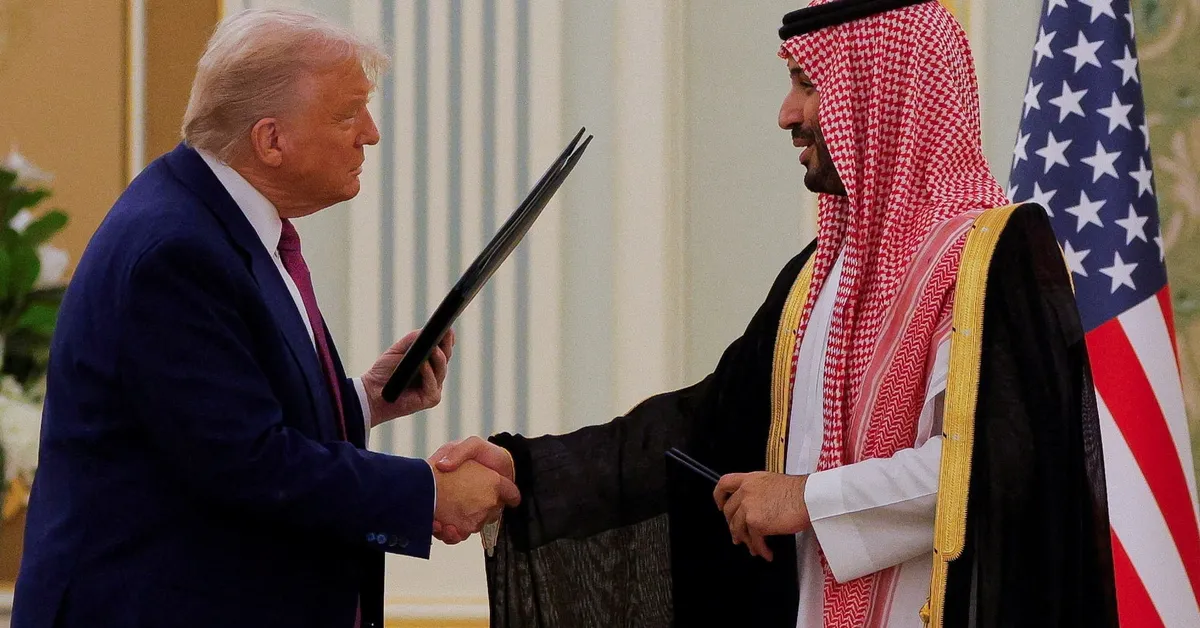
RIYADH, May 13 (Reuters) - In a historic move, the United States has agreed to sell Saudi Arabia an arms package valued at nearly $142 billion. This landmark deal, described in a White House fact sheet as the largest defense cooperation agreement ever made by Washington, was signed during U.S. President Donald Trump's visit to the Saudi capital, Riyadh.
The extensive arms package encompasses agreements with over a dozen U.S. defense companies, focusing on critical areas such as air and missile defense, advancements in air force and space technology, maritime security, and communications. According to the White House, this package is a testament to the commitment of the United States to strengthen its partnership with Saudi Arabia.
Reuters initially reported last month that the arms package would exceed $100 billion, marking a significant milestone in U.S.-Saudi relations. Although the White House fact sheet did not specify how many of the deals were new, multiple sources have indicated that many of these agreements have been in development for some time.
Saudi Arabia has consistently been the largest customer for U.S. arms. In 2017, President Trump proposed approximately $110 billion in sales to the kingdom. However, by 2018, only $14.5 billion of these proposed sales had been initiated, and Congress began scrutinizing the deals, particularly in light of the controversial murder of Saudi journalist Jamal Khashoggi.
The administration of former President Joe Biden attempted to finalize a defense pact with Riyadh, envisioning a broader agreement that would include Saudi Arabia normalizing relations with Israel. However, these efforts were ultimately unsuccessful, highlighting the complexities of U.S.-Saudi diplomatic relations.
One of the key points of contention remains whether Riyadh will be allowed to purchase Lockheed's F-35 jets, a military aircraft that Saudi Arabia has shown interest in for years. Discussions regarding this potential acquisition have taken place, but it remains unclear if Washington will approve such a sale. The F-35 is a cutting-edge aircraft that provides advanced capabilities, and its sale to Saudi Arabia would mark a significant shift in military dynamics in the region.
Sources familiar with the discussions have indicated that the issue of maintaining a qualitative military edge for Israel has emerged as a critical factor. This principle ensures that Israel receives more advanced American weaponry than its Arab neighbors. Israel has been operating F-35s for nine years, establishing multiple squadrons equipped with this advanced technology.
If the U.S. does approve the transfer of F-35 jets to Saudi Arabia, the kingdom would become only the second nation in the Middle East, after Israel, to operate these advanced fighters. Governments in the Gulf region have long sought access to the most advanced military technology, including stealth fighter jets capable of evading enemy detection.
As the situation develops, the implications of this arms deal and the potential sale of F-35 jets will be closely monitored by regional analysts and policymakers alike.
Reporting by Pesha Magid in Riyadh and Mike Stone in Washington; Writing by Andrew Mills; Editing by Mark Potter, David Gregorio, and Andrea Ricci.